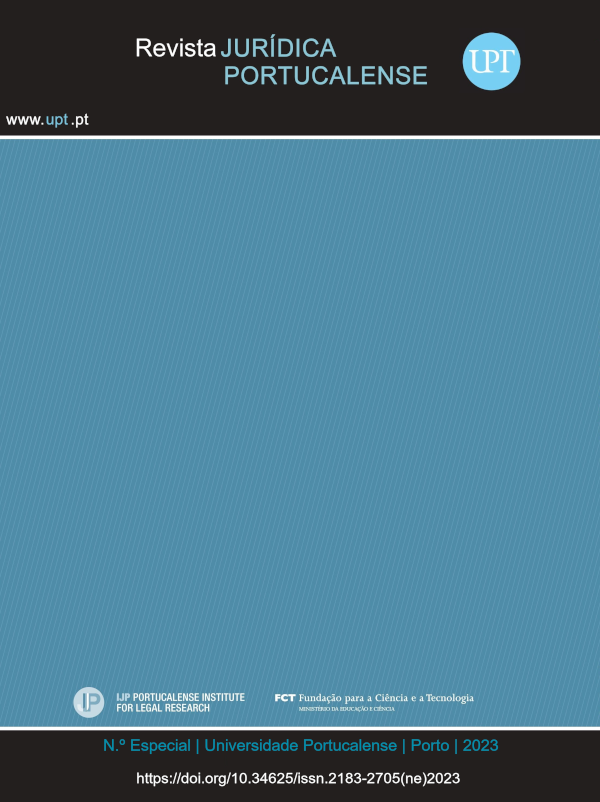Scientific doctrine as a source of law in international law and legal systems of the world
Keywords:
legal doctrine; concept; legal science; lawmaking; international lawAbstract
The term “doctrine” is often used in science, law-making and law enforcement processes, but its semantic meaning has not yet been determined, which makes it difficult to define the role of legal doctrine as a source of law. The aim of the article is to study legal doctrine as a special source of law, clarify the specifics of its formation and analyze the regulatory role and its potential, paying special attention to international law, as well as Romano-Germanic, Anglo-Saxon and religious legal systems. The research is based on such methods as analysis, synthesis, comparison, analogy, deduction, induction, abstraction. The inductive method made it possible to generalize and formulate the approaches of scientists, and the deductive method made it possible to consistently argue the author’s position. The authors draw conclusions that the definition of a legal doctrine as a source of law can be formalized legislatively. It is normatively permissible to reveal the notion of legal doctrine, determine a doctrine as a source of law and establish mechanisms for resorting to this source in law enforcement.
References
Aust, A. Handbook of international law. Cambridge: Cambridge University Press, 2010.
Behruz, H. Comparative jurisprudence. Odesa: Phoenix, 2008.
Biloskurska, O. “Constitutional doctrine as a source of constitutional law.” Rule of Law 29, (2018): 139-145.
Buchanan, K. “The Role of the “Doctrine” as a Source of Law in France.” 2010. https://blogs.loc.gov/law/2010/12/the-role-of-the-doctrine-as-a-source-of-law-in-france/
Chernovol, D. “The role of separate legal mechanisms of integration of the national law of Ukraine into the system of law of the European Union.” Current Issues of State and Law 3, (2007): 97-105.
David R., and Geoffre-Spinozi, K. Basic legal systems of our time. Paris: Précis, 1992.
Dessemonten, F., and Ansay, T. Introduction to Swiss law. Hague: Kluwer Law International, 2004.
Gardiner, R. International law. London: Pearson Higher Education, 2003.
Grant, J., and Barker, C. Encyclopedic dictionary of international law. Oxford: Oxford University Press, 2009.
Grynchak, A.A., Tavolzhanska, Y.S., Grynchak, S.V., Smorodynskyi, V.S., and Latysh, K.V. “Convention for the protection of human rights and fundamental freedoms as a constitutional instrument of European Public Order.” Public Organization Review, (2022): Article in Press.
Gubanov, O. “Legal doctrine as a source of law within the Romano-Germanic, Anglo-Saxon and religious-traditional legal family: a comparative characteristic.” Law and Society 6, (2015): 9-14.
Helmersen, S. “Finding ‘the most highly qualified publicists’: lessons from the international court of justice.” European Journal of International Law 30, (2019): 509-535.
Iskra, S. “Definition of legal doctrine in its relation to legal science.” Enterprise, Economy and Law 11, (2018): 177-180.
Karmalita, M. Legal doctrine - a source (form) of the right. Kyiv: Taras Shevchenko National University of Kyiv, 2011.
Korchevna, L. Doctrine as a source of law. Odesa: Odesa I. I. Mechnikov National University, 2005.
Parkhomenko, N. “To clarify certain aspects of the nature of legal sources of law.” Journal of Kyiv University of Law 2, (2007): 9-15.
Peil, M. “Scholarly writings as a source of law: a survey of the use of doctrine by the International Court of Justice.” Cambridge Journal of International and Comparative Law 3, (2012): 136–161.
Polyansky, E. “Legal doctrine as a basic concept of law: nature, structure, meaning.” Scientific Works of the National University “Odesa Law Academy” 17, (2015): 297-313.
Semenikhin, I. “Legal doctrine: aspects of understanding.” Problems of Legality 141, (2018): 8-21.
Semenikhin, I. “The role of legal doctrine in the formation of the European legal space.” State Building and Local Self-Government 24, (2012): 187-198.
Sivakumaran, S. “The influence of teachings of publicists on the development of international law.” International and Comparative Law Quarterly 66, (2017): 1-37.
Starikova, S. “Concepts, features and current issues of legal doctrine.” Actual Problems of Domestic Jurisprudence 3, (2018): 47-51.
The European Court of Human Rights. “Case of Jorgic v. Germany. (Application no. 74613/01).” 2007. https://invisiblecollege.weblog.leidenuniv.nl/files/2007/07/jorgic%5B1%5D.pdf
The European Court of Human Rights. “Tolstoy Miloslavsky v. the United Kingdom. Application No. 18139/91.” 1995. https://mmdc.ru/praktika_evropejskogo_suda/praktika_po_st10_evropejskoj_konvencii/europ_practice72/
Vapniarchuk, V.V., Puchkovska, I.I., Tavolzhanskyi, O.V., and Tashian, R.I. “Protection of ownership right in the court: The essence and particularities.” Asia Life Sciences 2, (2019): 863–879.
Vasiliev, S. “Legal doctrine - a source of procedural law.” Current Issues of Innovation Development 2, (2012): 72-73.
Vavilin, E. “Some problems of the mechanism of protection of subjective civil rights.” Jurisprudence 3, (2002): 178-186.
Vitzthum, W. Völkerrecht. Berlin: De Gruyter, 2019.
Walker, R. The English legal system. London: Oxford University Press, 1976.
Zweigert, K., and Ketz, H. Introduction to comparative jurisprudence in the field of private law. Oxford: Clarendon Press, 2000.
Downloads
Published
How to Cite
Issue
Section
License
Copyright (c) 2023 Revista Jurídica Portucalense

This work is licensed under a Creative Commons Attribution 4.0 International License.
Authors who published in the journal agree to the following terms:
- The Authors grant the Journal the right of first publication, and other non-exclusive publishing rights, licensed under the Creative Commons Attribution License which allows the sharing of work with recognition of its initial publication in this journal.
- Authors are able to take on additional contracts separately, non-exclusive distribution of the version of the paper published in this journal (ex .: publish in an institutional repository or as a chapter in a book), with an acknowledgement of its initial publication in this journal.
- Authors are permitted and encouraged to post and distribute their work online (eg .: in institutional repositories or on their website) at any point before or during the submission process, as it can lead to productive exchanges, as well as increase the impact and the citation of published work (See The Effect of Open Access).
RJP does not apply submission, publication or any other fees of any nature. Its articles are open access, with the goal of disseminating scientific knowledge and the debate of legal topics in the area of Legal Sciences.






